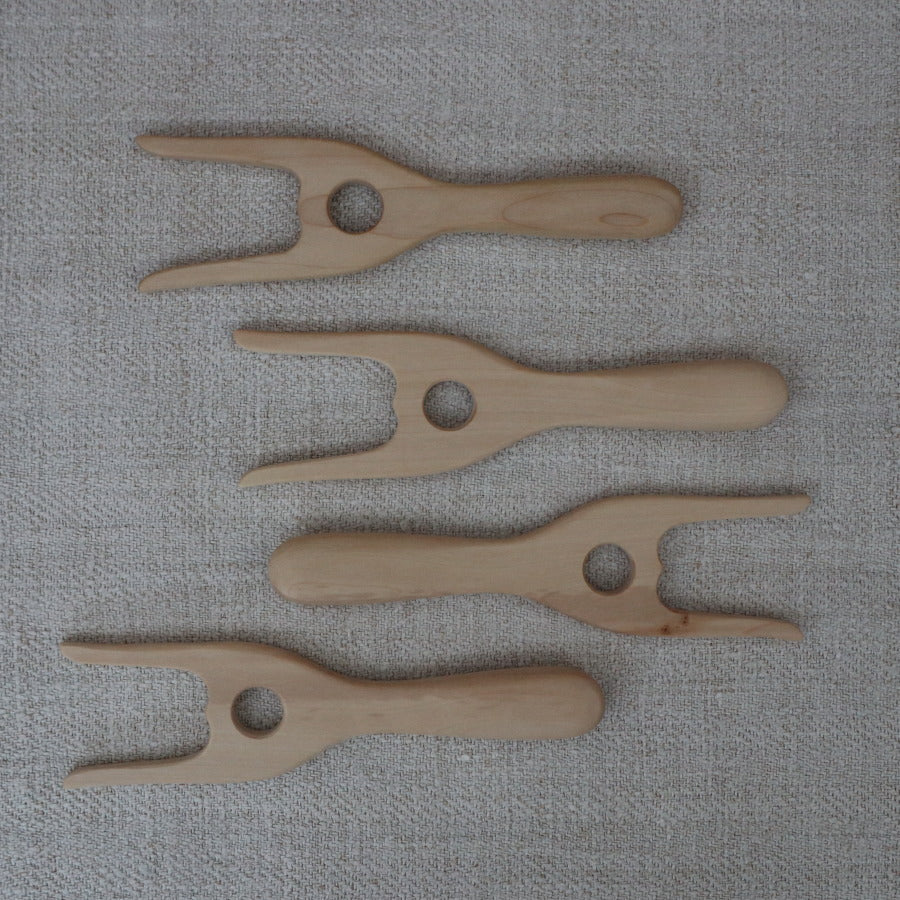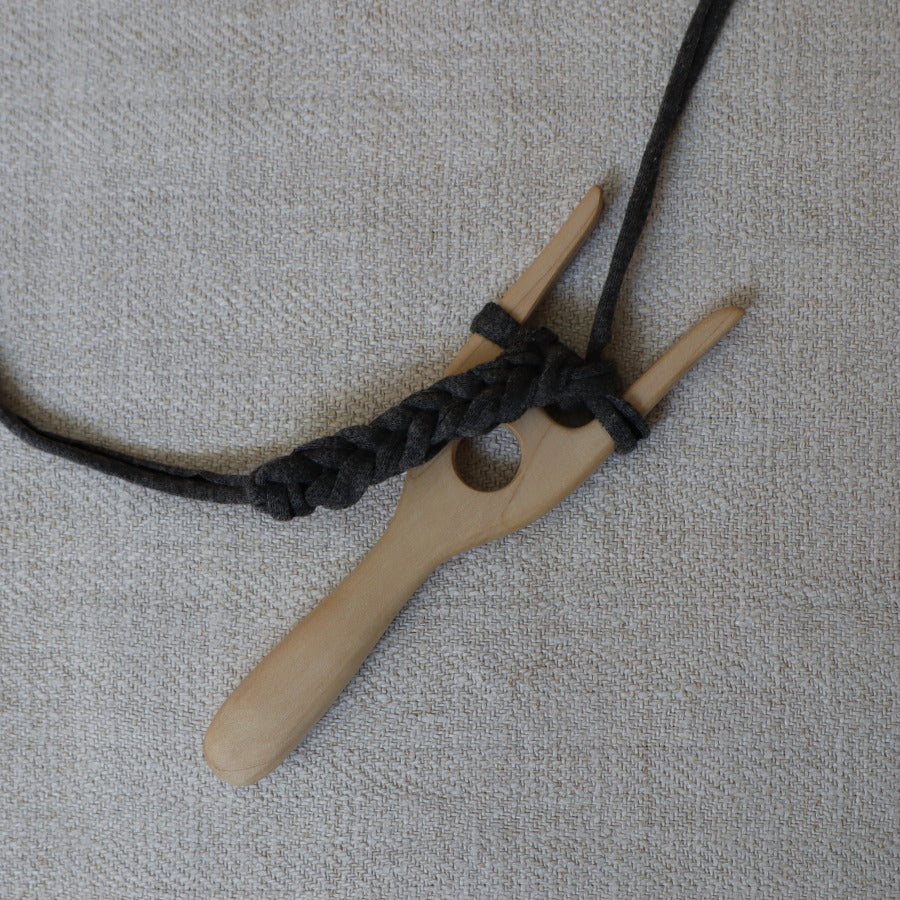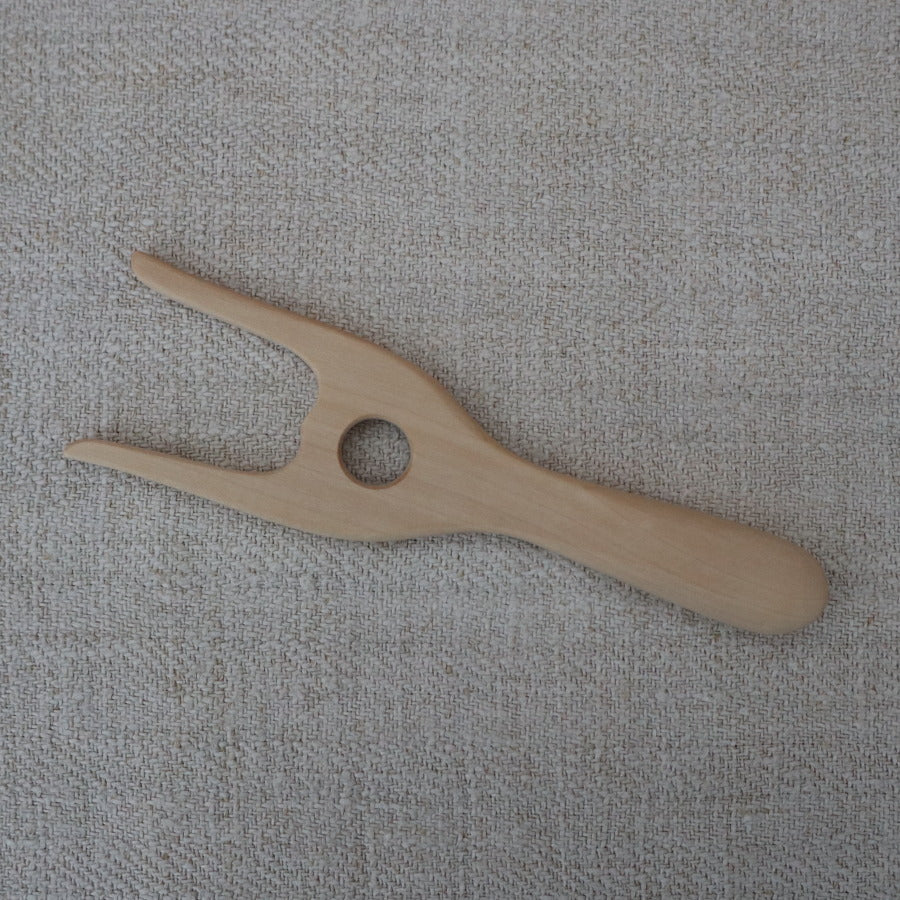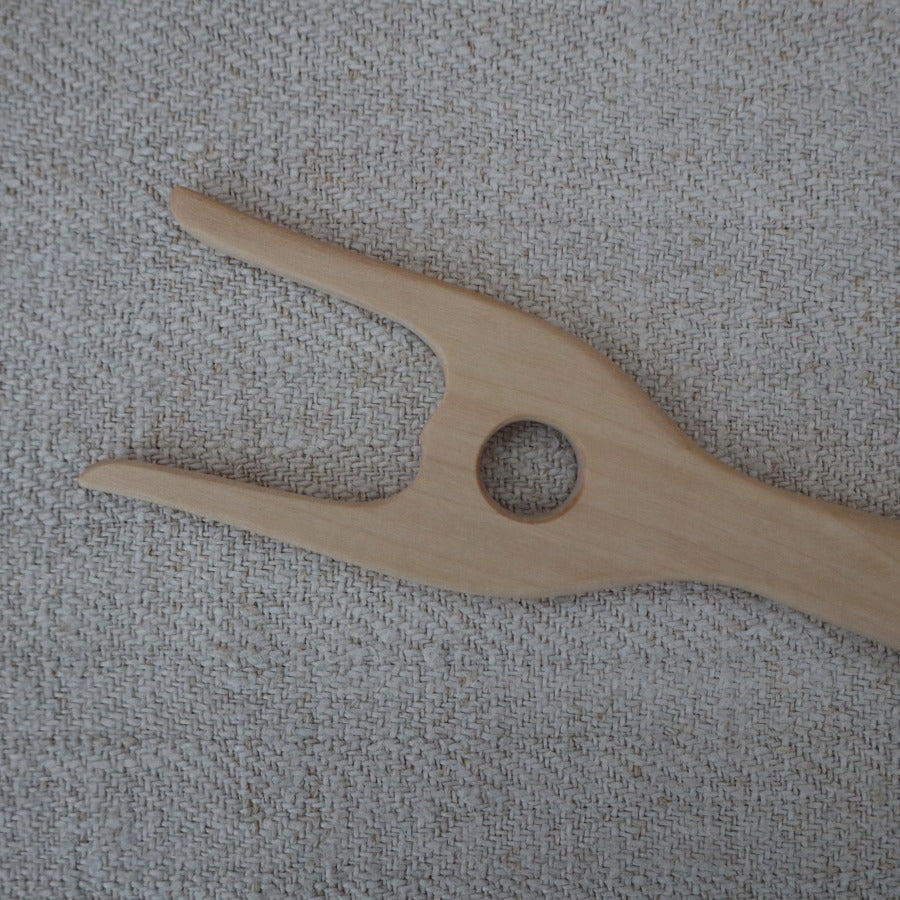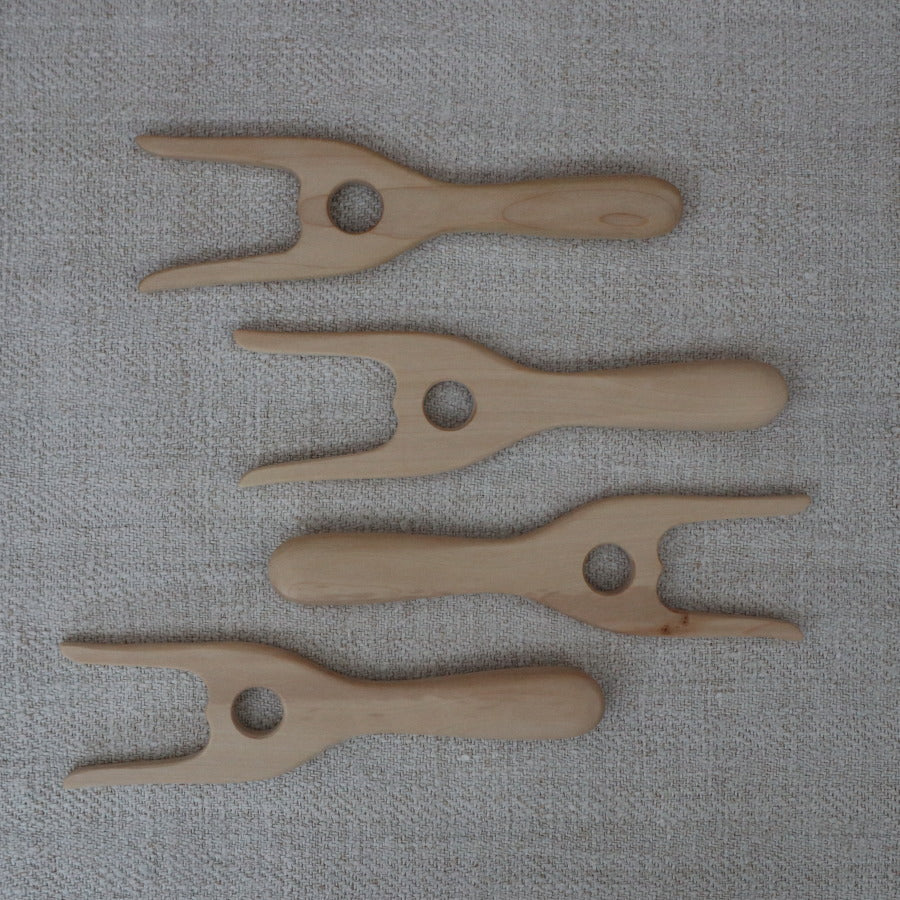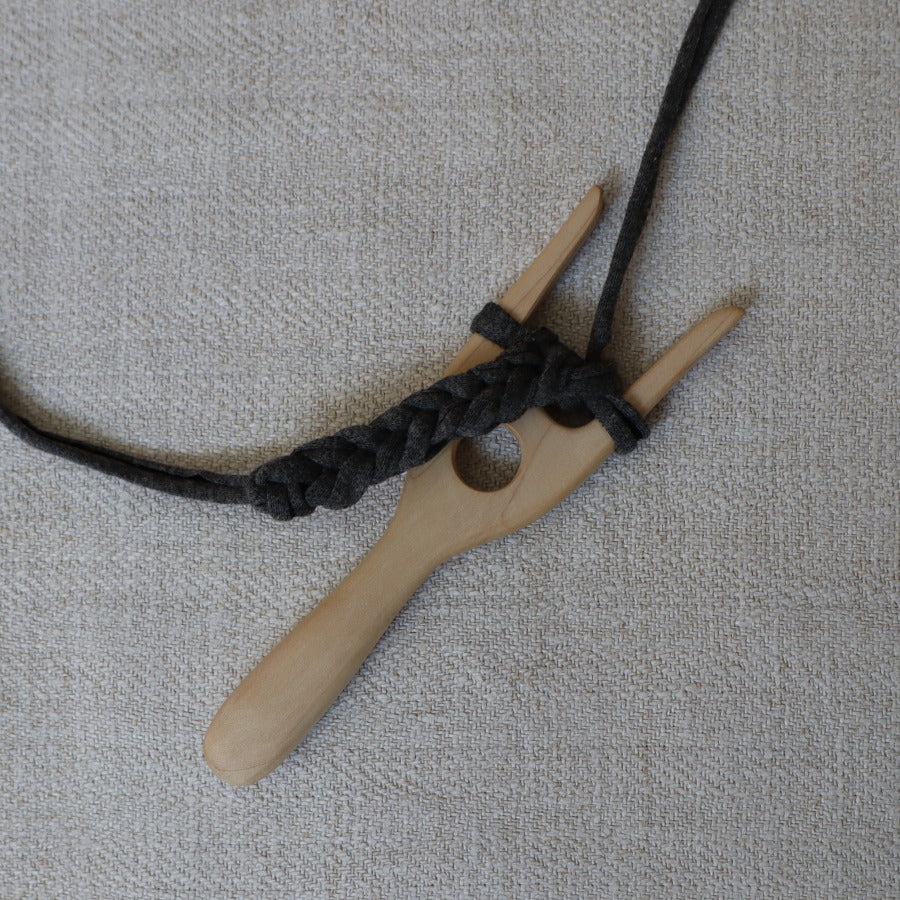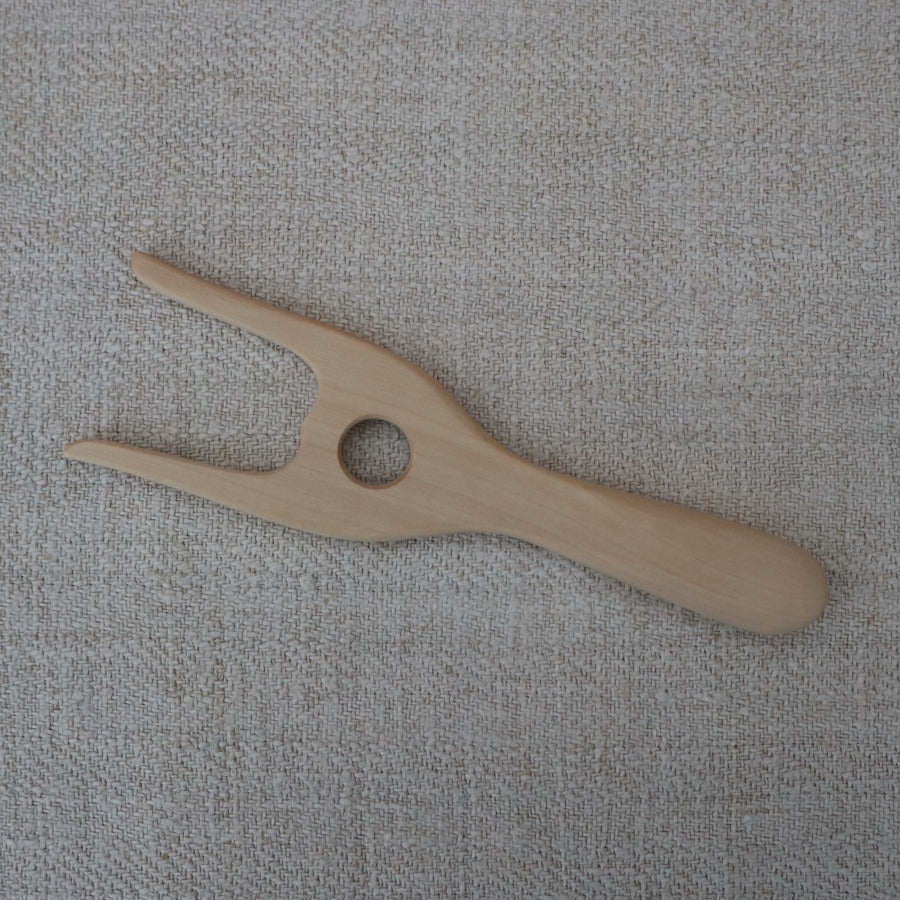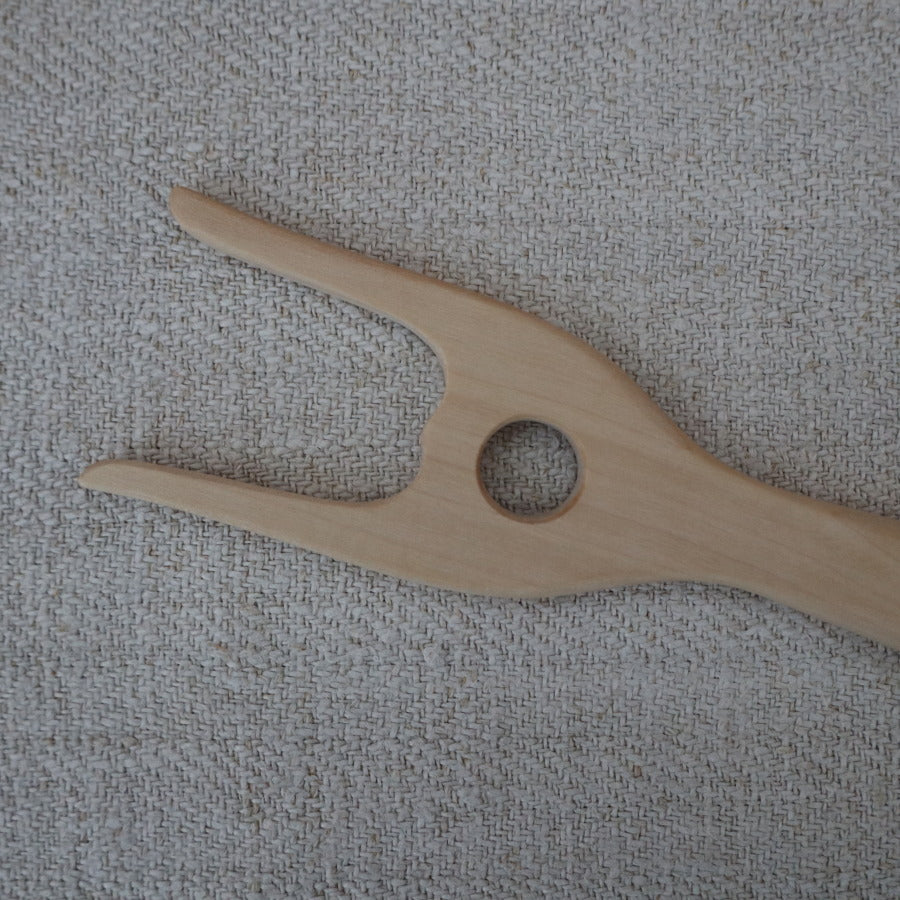Wooden lucet – knitting fork
Wooden lucet – knitting fork
Couldn't load pickup availability
A lucet, also known as a knitting fork, is a small two-pronged tool for making cords. Lucets come in many shapes and they can have a handle or be without a handle. There is also often a hole through which the cord can pass, but this is not absolutely necessary. Lucets are often made of wood, but they have also been made of bone, horn or metal, nowadays also of plastic.
Knitting forks have been used for hundreds of years to make various strings and cords. These cords have been used for many purposes, e.g. as belts, drawstrings and shoelaces.
Making cords with a lucet is not particularly difficult, so it is also suitable for children as an easy handicraft project.
There are different techniques for making cords. The lucet can either be continuously held in the same position in one’s hand and the yarn is moved around the prongs, or the lucet is continuously flipped around its axis while the working yarn stays in place. Lucet cords can be made from thin as well as thick yarn. Some people use a needle to lift the yarn over the prongs, while others use their fingers to do so. For the latter method, the space between the prongs needs be large enough. Our lucet is wide enough to allow easy lifting of the yarn with your fingers.
This lucet is designed by Ekovekotin Ltd and is exclusively handcrafted for us in a small woodshop in Finland. It’s shape is based on antique models. The hole is relatively large (diameter approx. 1.6 cm) so that even thicker cords can fit through it. The distance between the prongs is approx. 4 cm and the dimensions of the lucet as a whole are approx. 17 cm x 4.8 cm x 1.5 cm. The handle is thicker than the other parts and is rounded on all sides, so that it fits comfortably in the palm of your hand. The upper part is approx. 0.7 cm thick.
The raw material of the knitting fork is maple, which comes from individual trees in the woodshop’s surroundings that have been cut down for one reason or another. The surface of the finished product has been sanded smooth, otherwise it is untreated.
